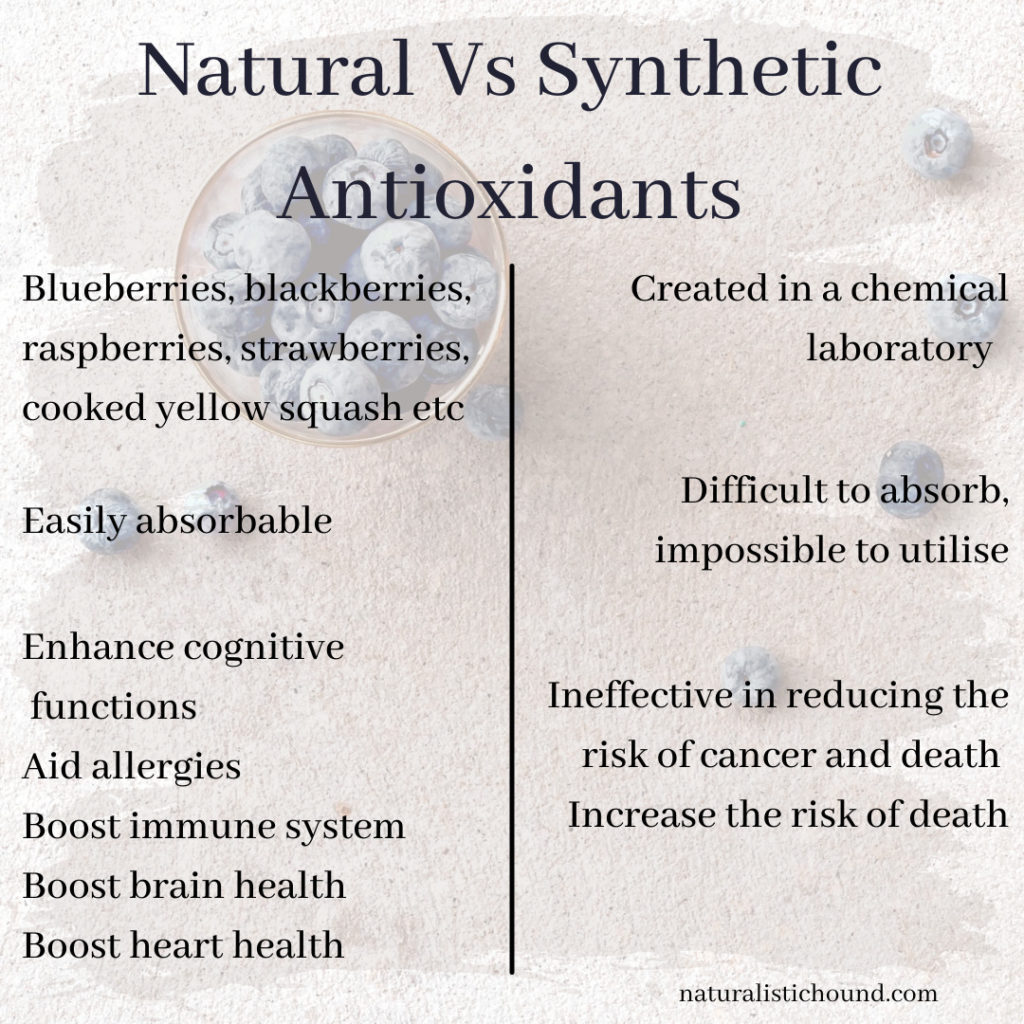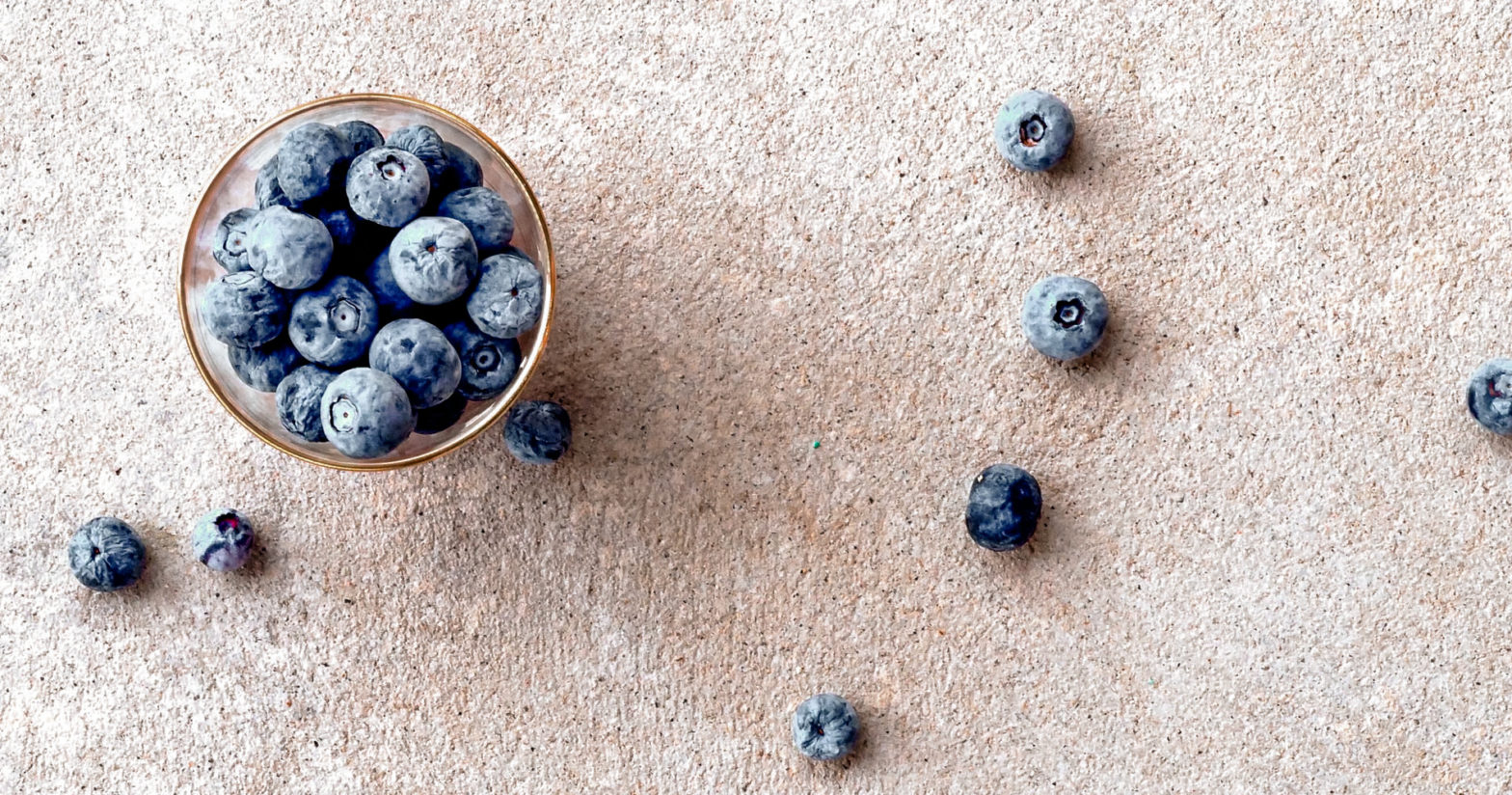First Of All, What Are Antioxidants
“Antioxidants are compounds that inhibit oxidation. Oxidation is a chemical reaction that can produce free radicals, thereby leading to chain reactions that may damage the cells of organisms.”
Oxidation is a naturally occurring chemical process, that produces molecules called free radicals, these molecules then react with and harm cells in the body damaging the membrane, the enzymes and the DNA contained within. The damage that occurs over time is shown to cause arthritis, heart disease, cognitive dysfunction, and even cancer in adult dogs[1].
Although free radicals are produced naturally in the body, other factors can accelerate their production. Those include exposure to toxic chemicals, such as pesticides and air pollution, smoke (yes, your cigarettes’ smoke is bad for your dog too!), ozone and more. These everyday threats expose both us and our dogs to a myriad of toxins during daily walks or even while relaxing at home.
Here are just a few simple ways that your dog can be exposed to harmful toxins (that we would not even think of):
- Lying in, rolling around in, playing in, and especially eating grass that may have been treated with chemicals
- Licking every surface, indoors or outside (consider household cleaning products, environmental toxins and pollution on the sidewalk, puddles, flowers that have been sprayed with pesticides)
- Toxins in the air that have settled in their coat and paws after a day outside (these will remain on your dog until you bathe them)
- And more…
Fortunately, there is a way of fighting these nasty free radicals!
Feeding a diet rich in antioxidants can help neutralize free radicals and reduce the risk of chronic diseases. Whilst the body’s standard antioxidant defences provide some protection, the additional antioxidants provided by diet will add a further “shield” that supports those natural defences.
Differently from what is commonly thought, antioxidants are not a single compound, but any substance (these can be in the form of vitamins, minerals, etc) that protects against damage to cells caused by free radicals.
By eating a wide variety of rich foods, you can boost your dog’s blood levels of antioxidants and secure their many health benefits.
Why Dogs Need Antioxidants
Once antioxidants enter the body, they attack the harmful free radicals and safely eliminate them. But if your dog does not have a diet rich in fresh natural antioxidants, the free radicals will build up and an excessive amount of them can damage cells and lead to health issues such as:
- Premature ageing
- Respiratory diseases
- Skin allergies
- Eye problems such as cataracts and blindness
- Immunodeficiencies and autoimmune disorders
- Cancer
- Arthritis and joint problems
- Heart disease
Now that we have an idea of the antioxidant world and why your dog needs them, let’s look at the best antioxidants for dogs in each stage of their life.
Puppies
Here are a puppy’s most needed antioxidants for a good start in life:
- Vitamin E – Boosts immune system and supports healthy blood vessels.
- Vitamin C – Excellent for joint pain, wound healing, energy, and inflammation of the gums.
- Beta Carotene – Provitamin A and increases antibody concentration levels in the blood.
- Selenium – Reduces the risk of cancer, protects against heart disease, helps cognitive function, supports thyroid health, reduces asthma symptoms.
Adult Dogs
Adult dogs mainly need to reduce and balance the overall level of inflammation in their bodies, so the antioxidants they should be receiving daily are:
- Vitamin E and C – Provides support to the immune system, joint health, energy, and inflammation.
- Polyphenols – As your dog ages, he may start to develop different kinds of diseases from cancers to cardiovascular diseases, osteoporosis to diabetes. Polyphenols help to prevent the development of these and keep your dog healthy.
Senior Dogs
Senior dogs need special immune system support. The following antioxidants can help slow down and sometimes even reverse age-related immunity problems:
- Vitamin E and C – As your dog grow older, different organs and natural functions start to degenerate. Vitamin E keeps the immune system strong, while vitamin C continues to protect joints and provide energy.
- Beta Carotene – Helps to increase antibody levels present in the blood. Antibodies will activate the system to destroy bacterial cells.
- Polyphenols – Oxidative injury to cells in the brain and organs may be slowed by these antioxidants, providing a longer, healthier lifespan.

Natural Vs Artificial Antioxidants
So far it seems quite simple: the body produces free radicals, dogs eat foods rich in antioxidants, free radicals get destroyed.
The problem in all that for your dog?
Even if you are feeding the highest-quality dog food on the market, almost all, if not all, of the added vitamins and antioxidants will be synthetic.
Antioxidants are heat-sensitive, which means over certain temperatures they lose their healing powers. Because of the nature of dog food, manufactures will then have to add artificial antioxidants (created in a laboratory) to your dog’s food.
Even though synthetic nutrients are considered almost chemically identical to those found in food, the production process of synthetic nutrients is very different from the way plants and animals create them. So despite having a similar structure, your dog’s body will react differently to artificial nutrients.
Moreover, it’s unclear how well synthetic nutrients are absorbed and used in the body, some are not easily absorbed, others are not absorbed at all[2].
This is because when your dog eats real food, he is not consuming single nutrients, but rather a whole range of vitamins, minerals, co-factors and enzymes that will work in synergy allowing optimal use for the body. Without these additional compounds, artificial nutrients are unlikely to be used by the body in the same way as their natural matches[3].
Feeding these potentially dangerous chemicals is much more serious than once estimated. We should be concerned about feeding artificial vitamins and nutrients to our dogs. Recently published research arrived at two important conclusions: first, synthetic antioxidant supplements, including beta-carotene, vitamins A, C, E, and selenium (alone or in combination) are ineffective in reducing the risk of cancer[4] and death[5]. Second, these chemicals may even be dangerous to general health as some have been shown to increase the risk of death by increasing the incidence of cancer and heart disease[6]!
Where To Find Natural Antioxidants & What Are Their Benefits
So, how can you be sure your dog is getting enough natural healthy antioxidants?
Luckily, there are numerous sources of natural antioxidants for dogs available, and most of them come from plants.
Try adding a few of these dog-friendly, antioxidant-rich foods to their diet; starting slowly to see how well your dog tolerates them and then increasing to the required amount:
- Blueberries, blackberries, raspberries, strawberries
- Cooked yellow squash, carrots, sweet potatoes
- Steamed broccoli, spinach, kale, green beans
- Green-lipped mussels
- Eggshell membrane (the thin layer between the egg white and the shell)
- Phytoplankton
- Tomatoes and mangos (in moderation)
As you can see, there is a wide variety of fruits and vegetables that you can start adding to your dog’s meal, which is rich in antioxidants.
Your dog will benefit greatly from them and here are some of the gains:
- Enhanced Cognitive Functions – A few studies[7] found that older dogs fed antioxidant-rich foods were more successful in learning complex tasks than their counterparts.
- Stronger Immune System – Thanks to their protective nature against damage caused by free radicals, antioxidants boost the immune system and promote immune system activity.
- Cancer Prevention – Research has shown that antioxidants help protect cells from damage associated with cancer caused by the free radical.
- Healthier Brain – Antioxidants have been shown to cross the blood-brain barrier to provide essential nutrients to the brain.
- Healthier Heart – An antioxidant-rich diet has been shown to reduce C-Reactive Protein (CRP), which is a marker for heart disease in dogs.
- Improved Joint Health – Antioxidants reduce joint pain and inflammation.
- Allergies Aid – It has also been shown that antioxidants can help dogs that struggle with allergies; as well as coat and skin problems.
- Better Eye Health – The anti-inflammatory properties of antioxidants help relieve dry eye and other painful eye conditions.
Ditching commercial dog food is the healthiest thing you could do for your dog.
Switch to a homemade, fresh, whole, organic diet and you will see great improvements on your dog straight away!
Would you still feed Commercial Food to your Dog?
Naturalistic hound
Let’s build a Complete, Balanced & Personalised Diet for your Best Friend!
Click here: Nutrition & Recipes
[1] Oxidative stress in cancer-bearing dogs
[2] Multivitamin and multimineral dietary supplements: definitions, characterization, bioavailability, and drug interactions
[3] Health benefits of fruit and vegetables are from additive and synergistic combinations of phytochemicals
[4] Antioxidant supplements for preventing cancers
[5] Antioxidant supplements for prevention of mortality in healthy participants and patients with various diseases
[6] Serious Dangers of Synthetic & Unnatural Vitamins
[7] Brain ageing in the canine: a diet enriched in antioxidants reduces cognitive dysfunction


3 thoughts on “Natural Vs Artificial Antioxidants”
Comments are closed.